Related Research Articles
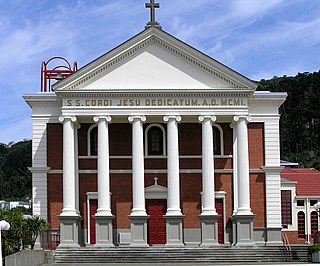
The Catholic Church in New Zealand is part of the worldwide Catholic Church under the leadership of the Pope in Rome, assisted by the Roman Curia, and with the New Zealand bishops.
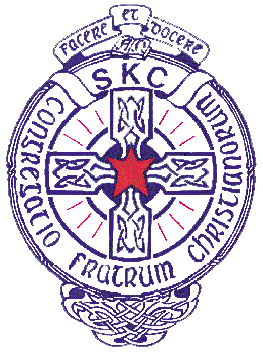
St Kevin's College in Oamaru, New Zealand, is a Catholic, coeducational, integrated, boarding and day, secondary school. It was founded by the Christian Brothers in 1927 for boys and became a co-educational school in 1983 on the closing of St Thomas's Girls' Secondary School operated by the Dominican Sisters. The sisters had already, in 1977, closed down St Patrick's Dominican College, Teschemakers, a secondary boarding school for girls located 10 kilometres south of Oamaru, with many of the students transferring to St Thomas's. Dominican sisters joined the staff of St Kevin's College in 1983. The college became a state integrated coeducational school in the same year. The Christian Brothers ceased to be on the teaching staff of the college in the late 1990s but remained the school's proprietor, and so appointed representatives to the college board, until 2019 when they transferred the ownership of St Kevin's College to the Bishop of Dunedin.
Trinity Catholic College is a Catholic, state-integrated, co-educational, secondary school located at Rattray St, in City Rise, central Dunedin, New Zealand. The school was founded in 1989 as the ultimate successor of several secondary schools and one primary school. The immediate predecessor schools were Moreau College and St Edmund's boys primary school both located in South Dunedin and St Paul's High School on whose Rattray St site Trinity Catholic College was established. Trinity is the only Catholic secondary school in Dunedin and is open to enrolments from throughout the entire city. The school's proprietor is the Catholic Bishop of Dunedin.
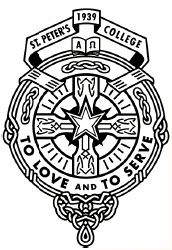
St Peter's College is a Catholic secondary school for boys in the Edmund Rice tradition, and dedicated to St Peter. It is located in the central Auckland area of Grafton, Auckland, New Zealand. With a roll of over 1300 it is one of the largest catholic schools in New Zealand. St Peter's College was established in 1939 as a successor of Auckland's earliest school and of St Peter's School, founded in 1857. However, there was also another Catholic secondary school dedicated to St Peter, Hato Petera College or St Peter's Māori College, which existed for 90 years from 1928 until 2018 in Northcote.

Liston College is a school in Henderson, Auckland, New Zealand, for year seven to 13 boys and offers a Catholic education to its students. It was the second school opened by the Christian Brothers in Auckland. It was named after Archbishop Liston (1881–1976), the seventh Catholic Bishop of Auckland (1929–1970). The school was founded in 1974 to serve the Catholic families of West Auckland and to absorb the growing number of boys who travelled daily to St Peter's College in central Auckland.
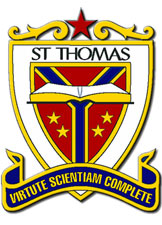
St Thomas of Canterbury College is a college for year 7 to 13 boys and offers a Catholic education to its students. It is located in Christchurch, New Zealand. The college is integrated into the state education system under an integration agreement which was first entered into by the Christian Brothers and the Government of New Zealand on 11 November 1981 under Section 7 of the Private Schools Conditional Integration Act 1975. St Thomas of Canterbury College is located in the Christchurch suburb of Sockburn. In 2019 the Christian Brothers transferred the ownership of the college to the Bishop of Christchurch.

James Michael Liston was the 7th Roman Catholic Bishop of Auckland, New Zealand.

John Paul College is a Catholic secondary school in Rotorua, New Zealand. The co-educational school enrolls students in years 7 to 13. It was opened in 1987 and combined two existing schools, Edmund Rice College and MacKillop College. The school was founded to serve the Catholic families of Rotorua. John Paul College is named for Pope John Paul II.
Nukutere College is a Roman Catholic secondary school located in Avarua, Rarotonga, Cook Islands. It is the country’s only Catholic secondary school and has an important educational role across the archipelago. "Nukutere" means "people on a journey", a reference to the pilgrim Church in the South Pacific context.
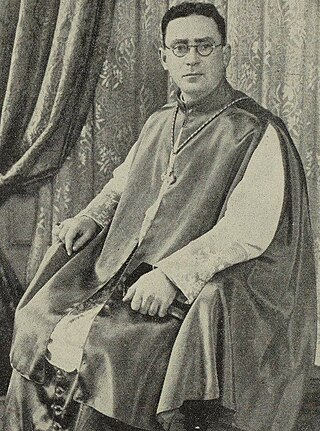
Patrick Lyons was an Australian prelate of the Catholic Church. He was the third Bishop of Christchurch, New Zealand (1944–1950), Auxiliary Bishop of Sydney, New South Wales, Australia (1950–1957) and fourth Bishop of Sale, Victoria, Australia (1957–1967).
St Joseph's School is a school in Oamaru, the largest town in North Otago, in the South Island of New Zealand. It was established by an order of Catholic nuns — Dominican Sisters — who started teaching in Oamaru in 1882. It is associated with St Patrick's Basilica, Oamaru

Edmund Rice Education Australia (EREA) is an organisation established by the Congregation of Christian Brothers in Australia to own, govern, manage, and conduct education ministries in the Catholic tradition and in the charism of Blessed Edmund Ignatius Rice. As of 2021, EREA included 55 member schools.

John Bartholomew Callan was a New Zealand judge. He was a Justice of the Supreme Court (1935–51).
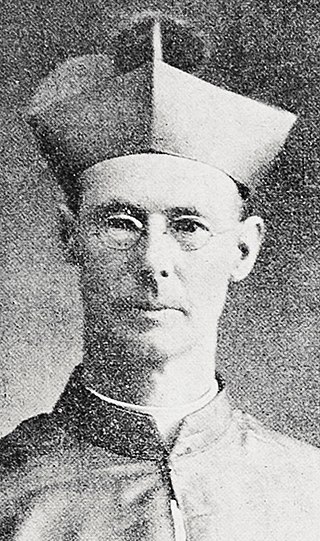
James Whyte was the third Roman Catholic Bishop of Dunedin (1920–1957).

Michael Verdon was the 2nd Catholic Bishop of Dunedin from (1896–1918).
The 2002 Queen's Birthday and Golden Jubilee Honours in New Zealand, celebrating the official birthday of Queen Elizabeth II and the golden jubilee of her reign, were appointments made by the Queen in her right as Queen of New Zealand, on the advice of the New Zealand government, to various orders and honours to reward and highlight good works by New Zealanders. They were announced on 3 June 2002.
References
- 1 2 3 J. C. O'Neill, The History of the Work of the Christian Brothers in New Zealand, unpublished Dip. Ed. thesis, University of Auckland, 1968; Graeme Donaldson, To All Parts of the Kingdom: Christian Brothers In New Zealand 1876–2001, Christian Brothers New Zealand Province, Christchurch, 2001.
- 1 2 Graeme Donaldson, pp. 29–31.
- ↑ Amy Kiley, "Brothers to reorganise into one Oceania province", The New Zealand Catholic, 8 April 2007; Edmund Rice Newsletter, August 2007 Archived 14 October 2008 at the Wayback Machine .
- ↑ Graeme Donaldson, p. 32.
- ↑ Amy Kiley, The New Zealand Catholic, 8 April 2007
- ↑ Brother Joe Lauren, "Brother Bill - Memories by Joe Lauren", STC, 10 December 2024(Retrieved 19 January 2025)